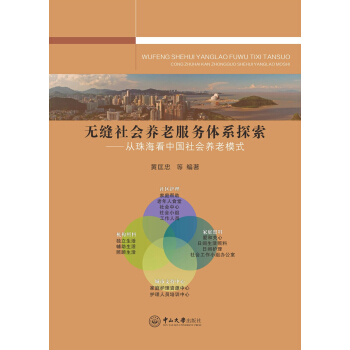

具体描述
内容简介
论元共享现象涉及句法与语义的接口,是语言研究的核心问题之一。《汉语兼语式中论元共享问题的zui简方案研究》通过分析汉语兼语式中的论元共享现象,并结合移位的拷贝理论,提出了论元共享问题的拷贝分析法。研究表明,语音界面与语义界面的不平衡性是造成论元共享现象的根源,论元共享问题的解决须从对拷贝的语义解读着手。拷贝分析法符合语言设计的经济原则,增强了原有理论与简方案研究理念的兼容性,揭示了语言表达的经济性与充分性之间的矛盾这一驱动语言发展的普遍机制。目录
Contents序
前言
Foreword
List of Abbreviations
Chapter One Introduction 1
1.1 Preliminaries 1
1.2 Main Ideas of This Book 6
Chapter Two The Pivotal Construction and Argument Sharing 9
2.1 Definition and Classification of PCs: The Argument Sharing Phenomenon 10
2.2 The Grammatical Function of NP2: The Argument Sharing Problem 30
2.3 Summary 37
Chapter Three The Control Theory and The Movement Theory of Control 38
3.1 The Control Theory and Its Potential Problems 38
3.2 The Movement Theory of Control 58
3.3 Summary 68
Chapter Four The Copy Theory of Argument Sharing 69
4.1 The Copy Theory of Argument Sharing: An Overview 69
4.2 Generating Copies in the Single Cycle 70
4.3 Properties of Copies 96
4.4 Theta-role Assignment at SEM 100
4.5 Copies as Theta-role Bearers: A Solution to the Argument Sharing Problem 106
4.6 Case 113
4.7 Summary 124
Chapter Five Applying the CTAS to Pivotal Constructions 126
5.1 Phase-identification in PCs 126
5.2 Accounting for the Argument Sharing Problem in PCs 136
5.3 The Derivation and Interpretation of PCs under the CTAS 145
5.4 Summary 160
Chapter Six Applying the CTAS to Other Complex Predicate Constructions 162
6.1 The Application of the CTAS to Chinese SVCs 162
6.2 The Application of the CTAS to CDOCs 181
6.3 The Application of the CTAS to Control Constructions 192
6.4 Summary 204
References 205
Index 216
西安交通大学外国语言文学学科简介 218
用户评价
在阅读的过程中,我强烈地感受到了作者对于学术规范的尊重以及对现有研究成果的谦逊态度。全书引用的文献列表极为详尽且组织有序,从经典的奠基之作到最新的前沿探讨,几乎无一遗漏。更重要的是,作者在引用他人观点时,总能准确地把握其核心精髓,并清晰地标注出自己的研究与前人工作之间的清晰界限——哪些是继承,哪些是修正,哪些是全新的突破。这种对“学术对话”的认真对待,使得这本书不仅是一份独立的学术成果,更像是参与了一场与全球顶尖学者的深度研讨会。它为后来的研究者提供了一个极佳的范本,展示了如何在尊重历史脉络的基础上,清晰、诚实地定位自己的创新点。读完后,我不仅对研究主题有了更深的理解,同时也对如何进行严谨、负责任的学术研究有了更直观的认识,收获远超预期。
评分阅读这部作品的过程中,我深切感受到了作者在构建其核心论证时所展现出的那种令人敬佩的逻辑严谨性。作者似乎拥有一种将复杂理论结构化、模块化的非凡能力。每当引入一个关键概念,总能辅以详尽的铺垫和清晰的界定,确保读者不会在概念的迷宫中迷失方向。特别是对于那些跨学科的术语引用,处理得尤为圆融自如,他并没有简单地堆砌引用文献来支撑论点,而是将不同学派的观点巧妙地编织在一起,形成一个自己独特的分析框架。我特别欣赏作者在论证过程中所保持的那种审慎态度,很少出现绝对化的论断,取而代之的是大量基于实验数据或扎实个案分析得出的“可能性”和“趋势”。这种克制不仅增强了文本的可信度,也留下了足够的空间供后续研究者进行补充和修正,体现了一位成熟学者应有的学术风范。跟随作者的思路进行推演,就好比在走一条铺设精密的栈道,每一步都坚实可靠,最终导向一个清晰的结论。
评分我体验到的是一次知识深度与广度令人惊叹的整合之旅。这本书显然不仅仅局限于某一狭窄的领域进行深挖,它更像是一个宏大的知识网络中的一个关键节点,辐射和连接了多个相邻的学科领域。我注意到,为了解释某个特定的句法现象,作者毫不犹豫地引入了认知心理学的原理来佐证其合理性,在另一些地方,又巧妙地借鉴了计算语言学中的模型假设来辅助验证。这种跨学科的视野极大地拓宽了我的思维边界,让我意识到,任何一个语言学问题都不是孤立存在的,它们必然镶嵌在更宏大的人类认知和信息处理系统之中。这种整合不是简单的拼凑,而是一种深层次的知识交融与互证,使得全书的论证体系显得异常坚固和全面,展现了作者扎实的跨学科功底和广博的学识储备。这让我想起那些文艺复兴时期的博学家们,他们对知识边界的蔑视与探索精神,在这部著作中得到了现代的体现。
评分本书的叙事风格简直是一股清流,完全颠覆了我对传统学术著作的刻板印象。它不是那种冷冰冰、充满术语堆砌的教材,反而充满了鲜活的生命力和探索的热情。作者仿佛是一位经验丰富的导游,带着读者穿梭于不同的语言现象之间,他善于使用生动的比喻来解释那些抽象的语法规则,比如用“交通枢纽”来形容某个核心的句法位置,一下子就让原本晦涩难懂的概念变得形象起来。更妙的是,作者的笔触中流露着一种对语言本身的深深的敬爱之情,那种“发现美”的喜悦感染着每一个读者。在某些关键的例句分析部分,作者的描述充满了画面感,仿佛能看到句子在语境中是如何动态运行、意义是如何层层叠加的。这种叙述的张力,使得即使是对于某个特定语言学分支了解不深的入门读者,也能被其强大的表达力和感染力所吸引,愿意主动沉浸其中,探索语言世界的奥秘。
评分这本书的装帧设计给我留下了极为深刻的印象。封面采用了那种略带磨砂质感的深蓝色纸张,触感温润而厚重,中央的烫金字体在灯光下熠熠生辉,透露出一种古典与现代交织的美学趣味。特别是书名这几个字的排版布局,设计师显然在字间距和行距上花费了大量心血,使得整个视觉焦点稳定而又不失灵动。内页纸张的选材也十分考究,米白色的纸张有效缓解了长时间阅读可能带来的视觉疲劳,印刷油墨的浓度拿捏得恰到好处,即便是最细微的符号也能清晰锐利地呈现出来。装订方面,采用了线装与胶装相结合的方式,使得书本可以平摊展开,对于需要经常对照或做笔记的读者来说,这一点简直是福音。我注意到,随书附赠的一张小小的书签,材质模仿了古代的竹简样式,上面印着一句与语言学相关的格言,虽然微小,却体现了出版方对细节的极致追求。整体而言,这本书的物理形态本身就是一件值得收藏的艺术品,让人在尚未深入内容之前,就已经对阅读过程充满了期待和尊重。这种对书籍载体的重视,在如今这个电子阅读盛行的时代,显得尤为难能可贵。
相关图书
本站所有内容均为互联网搜索引擎提供的公开搜索信息,本站不存储任何数据与内容,任何内容与数据均与本站无关,如有需要请联系相关搜索引擎包括但不限于百度,google,bing,sogou 等,本站所有链接都为正版商品购买链接。
© 2026 windowsfront.com All Rights Reserved. 静流书站 版权所有



![一切与创造有关:想象力如何创造人类 [The Creative Spark] pdf epub mobi 电子书 下载](https://pic.windowsfront.com/12234089/5a0950c7N17ccb265.jpg)


![我们人类系列:宇宙+进化+基因+大历史,小世界(套装共4册) [Homo Sapiens:The Story of All of Us] pdf epub mobi 电子书 下载](https://pic.windowsfront.com/12234276/5a430a2aN89b513a7.jpg)
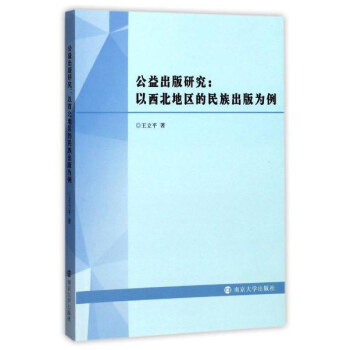

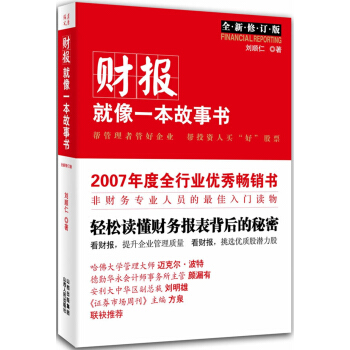


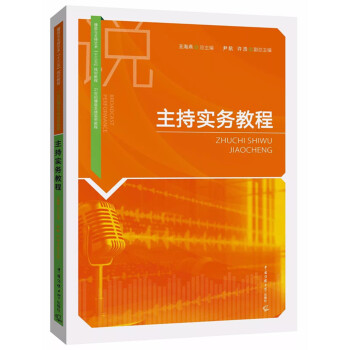



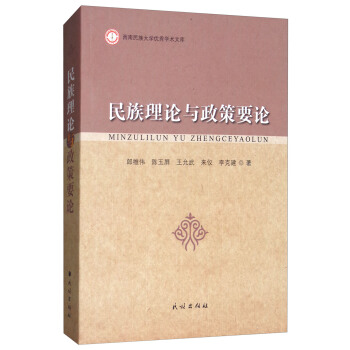
![山西统计年鉴2017(附光盘) [Shanxi statistical yearbook 2017] pdf epub mobi 电子书 下载](https://pic.windowsfront.com/12235699/5a378c00N0f384a0b.jpg)


